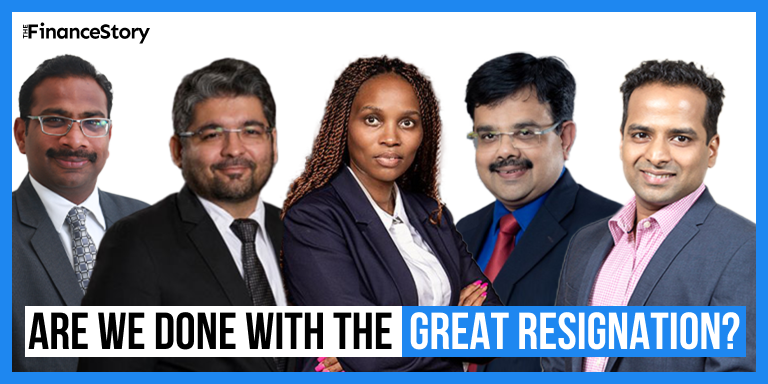Covid-19 made personal hygiene & work from home commonplace.
With a lot of time to reflect on the past, people want to take control of their lives and work in their own time.
So how real is the Great Resignation?
Great Resignation is a term that was first used by Anthony Klotz, a professor at Texas A&M who specializes in organizational psychology. He predicted that organizations will see more people leaving because of the stress at work and the anxiety caused by the global pandemic.
Around 4.5 million people left their work in the USA, last November alone according to the bureau of labor statistics.
Now organizations have begun to call it the Great Reshuffle in an effort to retain talent and are moving to a hybrid way of work where workers would come to the office for only three days a week.
If you browse through Google Search trends & the term “resignation” then it has remained flat for the last five years and the Great Resignation does not even end up as a top ten search item.
In reality, it is true that employees want to work out of the home.
“People want different things at different points in their lives, in their career paths, and you have to be open and non-judgmental about it. I think the biggest change, which I also feel is that senior leaders have to understand what their young employees want. Today employees want a shorter work week and they want to be with their families,” says Swanand Kelkar – former MD, Morgan Stanley, who took a sabbatical to pursue sport and yoga.
According to PWC’s pulse survey: next in work
“Employees have had more than a year to reflect on their needs and aspirations, and many want a new model of work. The latest US Pulse Survey found that 65 percent of employees are looking for a new job. 88 percent of executives of whom told PWC that they are seeing higher turnover than normal.
For the most part, executives have a good grasp of why their employees are looking elsewhere. But when it comes to offering incentives that employees want the most, they are falling short in two key areas: benefits and compensation.
This employer-employee tension compounds the challenge facing companies eager to redesign work. Rising inflation, Covid-19, and tension over vaccines, masks, and shifting return-to-work plans are creating extra uncertainty.”
New Realities
According to KPMG, there is a new reality emerging and in their report on redesigning the future of work the firm says:
“New ways of working will become commonplace as it seems unlikely that we will see a complete ‘return to the office’. Hybrid – and more digital – models of working will predominate, meaning that firms will have to step up their technological enablement.”
- Asset managers will need to rethink how, when, and where they operate. Customers expect more digital and seamless interactions – and at the same time, the coronavirus experience has led to changed employee expectations about flexible working patterns, connectivity, and communications.
- Attitudes to working in the office could be altered for several years to come; future offices will need to be re-designed to incorporate new health and well-being features.
- At the same time, along with many other corporates, asset managers are likely to re-evaluate and potentially downsize their leased office space. Working from home will become a permanent feature for at least some of the week for most staff, with hybrid working arrangements (Team A, Team B) also likely to become common.
- This is an opportunity – offering employees greater flexibility is seen as a positive – but also a challenge – Firms have concerns over diminished team building and a dilution of culture due to decentralized working.
Today one way to retain an employee is by looking at purposeful living
Raghav Swaminathan, the CFO of Wipro Enterprises says, “Growing up in India I realized the importance of work, where I know from day one that you have to be in a job to actually succeed in your life. The Great Resignation is not happening in India; it is largely limited to the US. The world is moving towards remote working and flexibility. But I think the generation shift if you really look at it, is really about more purposeful living and the employee may choose to work for an organization because he or she is inspired by the organization.”
“Right now, the biggest challenge is finding talent. It is not easy to go and get talent in the market. We are preparing to see that we have people on the bench. When we get anything significant or major, we should be able to deliver,” says Vikas Kumar, a Partner at one of India’s oldest accounting firms, T.R. Chadha & Co (TRC).
Recently it was reported that Airbnb has allowed its 6000 employees to work from home permanently. If that is the precedent then the nature of work itself is changing and resignations will result in a reshuffling of the workforce based on flexibility.







